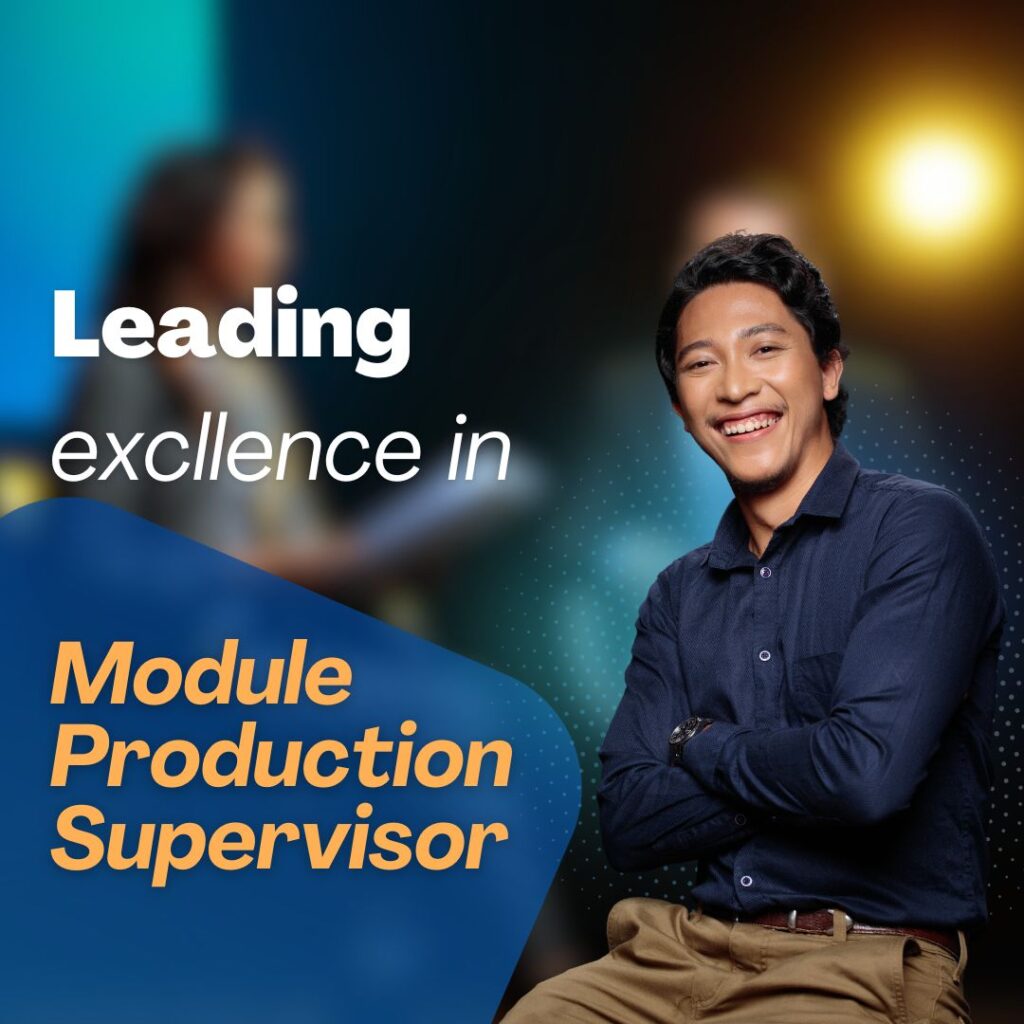Currently Empty: ₹0.00
Module Production Supervisor
About Course
A module production supervisor is responsible for overseeing the manufacturing of photovoltaic modules, ensuring production efficiency, quality control, and adherence to safety standards. They manage the production team, optimize workflows, and maintain equipment. Additionally, they monitor inventory and production schedules, addressing any issues that may affect module production. This role requires strong leadership and technical skills to ensure the efficient and consistent production of solar modules.
Course Content
Basics to PV Modules
-
Introduction and Training of Photovoltaic Module Raw Materials
49:24 -
Basic Introduction to Photovoltaic Module
53:25 -
Introduction to Efficient Module Technology
42:38 -
Process Flow Introduction
19:45
Production Prelamination
Production Lam & Post Lamination
Equipment Trainings
Supply Chain
Manufacturing Execution System
6s Occupational Health, Safety, and Environment (OHSE)
Tags




